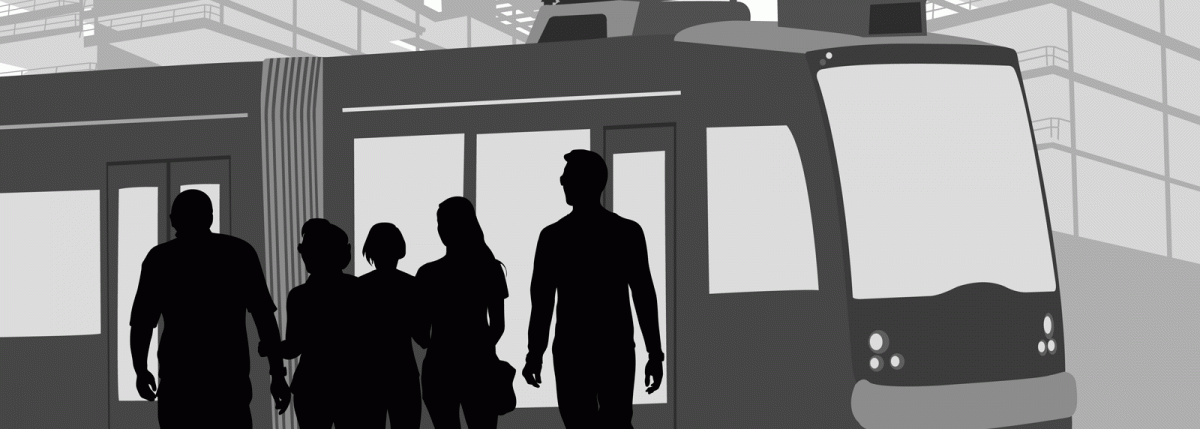Colorful Post-It notes lined the walls inside the Kimmel Center for the Performing Arts, each one containing intricate details on how to improve Philadelphia’s mass-transit system.
At the fifth-annual Fox DESIGNchallenge, a civic innovation challenge, students aimed to collaboratively transform their ideas into meaningful change in their community. This year’s objective focused upon identifying problem areas and generating feasible solutions in mass transit, car culture and the quality of urban life.
The event, organized by the Center for Design+Innovation (cD+i) at Temple University’s Fox School of Business and the Design for Social Impact Program at The University of the Arts, rendered two first-place teams.
“SEPTA is something everyone understands. It impacts everybody because it’s the network that moves the city,” said James Moustafellos, Associate Director of cD+i and an Assistant Professor of Management Information Systems at Fox. “The whole issue SEPTA is facing is, how do you have mass transit in a city that has a car culture?”
One of the winning teams provided methods for creating a more-enjoyable experience for Southeastern Pennsylvania Transportation Authority (SEPTA) passengers. The team members, including four Fox School students and one from Temple’s Tyler School of Art, designed a SEPTA “Smart Shelter.” The enclosed bus stop would provide digital information boards indicating arrival times and routes, and a well-lit interior as a safety precaution.
Another first-place team, featuring three Fox students, centered its designs on revamping existing SEPTA technology. The team suggested creating a new payment system using smart-phone applications, as well as providing video boards on concourse levels to display arrival times and available capacity on incoming trains.
“The result was to form a less auto-centric future for the city,” Moustafellos said. “A lot of the students’ designs centered around convenience, quality and cleanliness of the system, safety and communication methods.”
The Fox DESIGNchallenge brought together 150 students from colleges and high schools in the region, forming 20 teams geared toward solving the problem. First- and second-place teams received cash prizes. In addition to receiving monthly vouchers from SEPTA, the proposals from top-three finishers may be displayed on video boards throughout SEPTA’s transit system.
In the lead-up to the Feb. 25 final presentations at the Kimmel Center, teams interviewed civic, business and community leaders at a networking roundtable discussion. Then, they researched areas of interest, identified community problems and opportunities and ultimately complied their work to assemble design solutions that are humanly feasible and economically satisfying.
According to the American Public Transportation Association, Philadelphians could save an average of $12,000 per year by eliminating one car or by using public transportation more frequently.
“This is more than just a fun exercise,” Moustafellos said. “It’s really about experiential learning at its best. It’s about civic engagement. You become much more aware of the place you live in, its issues and how you can become an active participant in your society and make a change.”
“Design is much more than just look and feel nowadays,” said Dr. Youngjin Yoo, the Harry A. Cochran Professor of Management Information Systems and the Director of cD+i. “Companies like Apple, Samsung, IBM and P&G have shown us that design must be embraced as core strategic capability of a company, not just an afterthought. The DESIGNchallenge is an important component of the Fox MBA program. This gives a first-hand, real-life experience of designing solutions for complex business problems.”
The Fox DESIGNchallenge was funded in part by The Knight Foundation and the U.S. Economic Development Agency, through support of Temple’s Urban Apps and Maps Studios.

